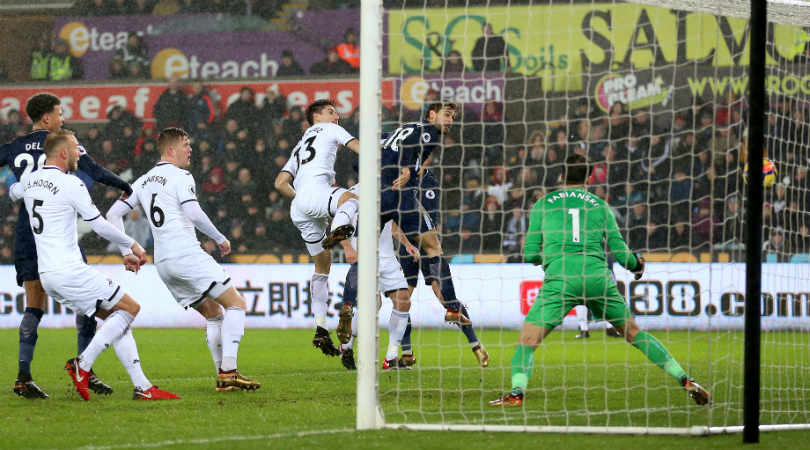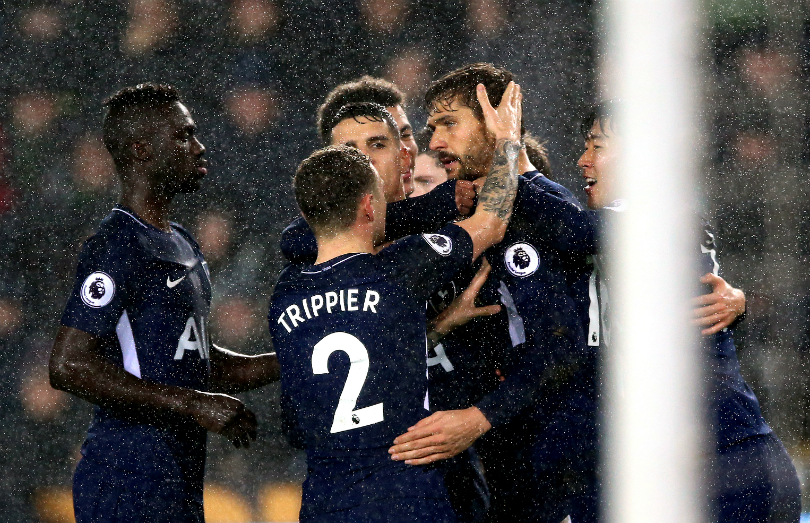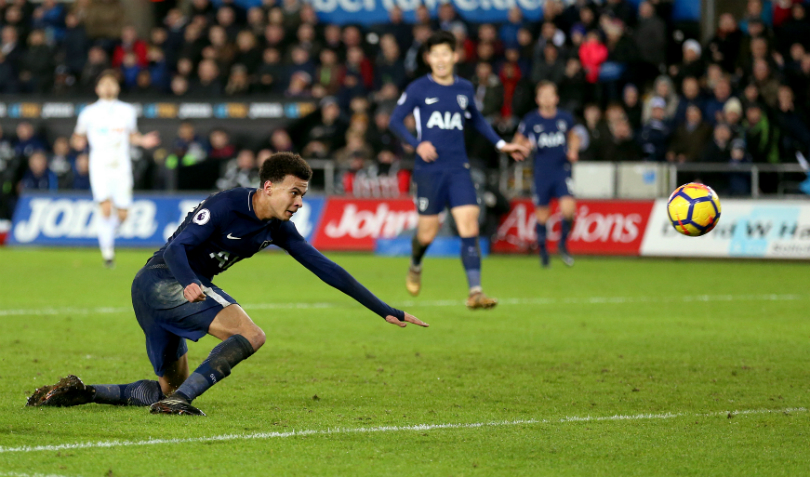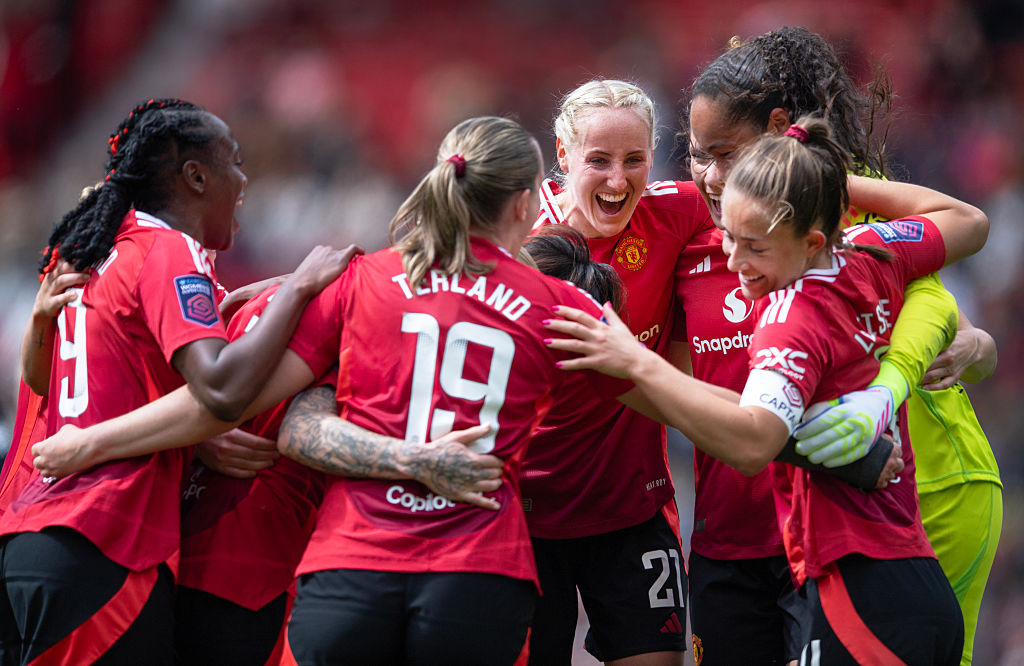Swansea 0 Tottenham 2: Observations from the Liberty Stadium
Seb Stafford-Bloor was at the Liberty on Tuesday night to watch Tottenham grind past Swansea in the rain.

This is how January nights in south Wales are supposed to look and feel. Icy wind swirling, heavy rain dancing in the floodlights. This is certainly how January is supposed to be in Swansea, challenged on every side as the club is by acrimony and subterfuge. Dissent towards embattled chairman Huw Jenkins periodically chorused through the weather and the natives weren’t short of disapproval for their players, either.
For Tottenham, it was the quintessential British challenge: the kind of the game which is supposed to send the weak-hearted scurrying for gloves and snoods.
This was the feared wet Tuesday night.
Beyond the cliche, this was a fixture truly claimed by the conditions. Fernando Llorente gave Spurs an early lead, rising highest - from an offside position - to head in a Christian Eriksen free-kick, but the first-half was a dour scrap. The Liberty Stadium pitch, the legacy of a rugby match a few days prior, was rough and wet, the ball spraying a trail every time it was passed.
Not a classic, then. Kieran Trippier and Tom Carroll rattled into each other in an earnest fifty-fifty, the crowd cooing their approval, and Tottenham threatened to neat-pass themselves to distraction, but the prevailing sense at the interval was of a game few wanted to take part in and fewer still wanted to watch.

Llorente was naturally the story. With West Ham waiting in two days’ time and Harry Kane recovering from illness, Mauricio Pochettino left his free-scoring forward on the bench. The decision paid an immediate dividend - a goal mined from The Law Of The Ex - but also equipped Spurs with an ideal gameplan.
Their possession was often neat and economic, but the Spaniard also provided the perfect out-ball for the occasion. A visiting player would receive possession deep, Llorente (accompanied by either Dele Alli or Heung Min Son) would surge towards the penalty-box and hunt the percentages.
The best features, fun and footballing quizzes, straight to your inbox every week.
A formulaic approach, but hardly the worst in such conditions.
Pochettino might have feared a bolder Swansea after their dramatic win over Watford at the weekend. To an extent, he was right to worry: a Jordan Ayew surge sent Spurs defenders scrambling in their own box midway through the second-half and, from the resulting corner, a Mike van der Hoorn header rebounded square off the post. Oli McBurnie, a scruffy young homegrown forward, also added some vague chaos with the ball arrowing into the visiting box.
Swansea perhaps didn’t have the better of the second-half, but they were certainly more vibrant - and, importantly, less limp than they often were in the final days of Paul Clement.
Kane though, introduced for the final half-an-hour, would provide the definitive moment of quality. His lofted through-ball would drop to Alli in stride and, though initially denied by Lukasz Fabianski, the midfielder prodded his finish high into the net. A lethal dose of class which ended the contest and sent the home supporters streaming through the exits.

Ultimately, this was the kind of win which is easy to frame: it was awkward, uncomfortable, and only confirmed in the dying seconds. Those are the ingredients of a satisfying victory. The positives for Spurs and Pochettino were real enough, too, with Llorente scoring his first goal of true value, Victor Wanyama emerging from a long injury absence, and Jan Vertonghen providing an authoritative performance in defence.
What the legacy of this game is remains to be seen, though. It was fought over ninety minutes on a heavy, boggy pitch and it involved at least eight players who will be required to start against West Ham in less than 48 hours.
For Swansea, who knows. Carlos Carvalhal has certainly stirred something in these players and there is now at least the suggestion of improvement. Collective focus, however, understandably lies elswhere; until a resolution is found between the club's board and its community, the fractures will remain very clear indeed. What happens on the pitch, in the short-term at least, is really of secondary concern.
It's a manifestation of what's happening above and around, in those dark clouds which just won't disappear.
Seb Stafford-Bloor is a football writer at Tifo Football and member of the Football Writers' Association. He was formerly a regularly columnist for the FourFourTwo website, covering all aspects of the game, including tactical analysis, reaction pieces, longer-term trends and critiquing the increasingly shady business of football's financial side and authorities' decision-making.
 Join The Club
Join The Club





